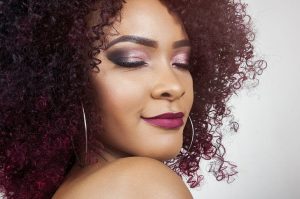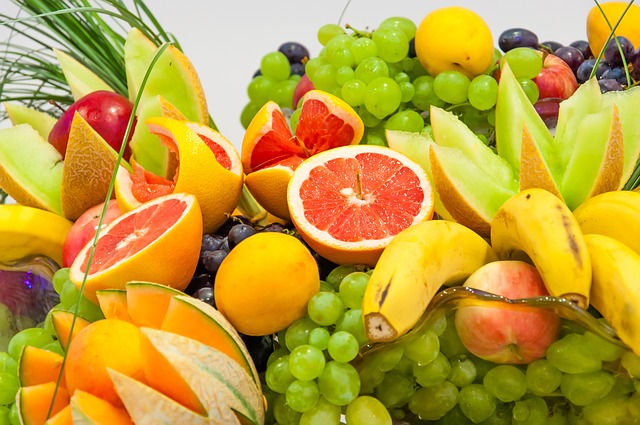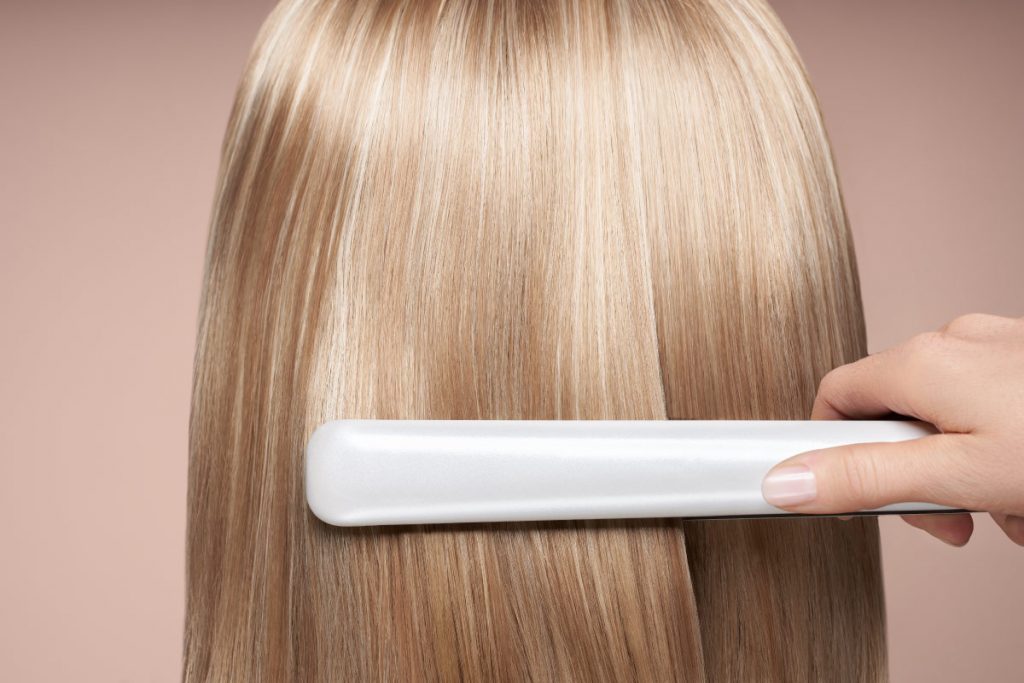Choosing the best Japanese shampoo is an important part of making your hair look amazing, but it’s also one of the hardest parts of hair care. Just like with the best Japanese makeup, one size definitely does not fit all and finding the right one requires a lot of work. You have to read the ingredient list and test out various different products until you find the right one.
It shouldn’t have to take lots of trial and error to find the right product. That's where we come in. We tested out various products and put together a comprehensive guide that can help you pick the best Japanese shampoo.Why Japanese Shampoo?
There’s a misconception that Japanese shampoo for hair is only good for asian hair types, but in fact it’s great for any type as long as it’s the right one.
Asian hair tends to be thick and straight and many Japanese products are great for this, but there are different Japanese shampoos for hair loss and damaged hair, as well as dyed and curly hair.
However, the biggest difference that Japanese products have with western ones is the amount of chemicals they use. They tend to be milder and contain less chemicals, which can be great for not just your hair but for your overall health as well.
Buying Guide
Know Your Hair Type

When looking for the best Japanese hair shampoo, the most important part of the process is understanding your hair type. Different products are made to work on different types of bodies and using the wrong type can lead to undesired results. Like medicine, shampoos often target specific hair types and there is no one size fits all (if there is, we wouldn’t be writing this and you wouldn't need to read this!)
Here are some different types of hair and what type of shampoo you need for them.
Oily
For hair that’s always greasy at the end of the day, you want to avoid products with extra oil and silicon ingredients. The excessive cleaning elements will not only remove the excess oil, but also strip off natural oils as well. The ideal Japanese shampoo for hair would be one that can remove the dirt and oil with the use of natural ingredients.
Thin
Thin hair tend to be less porous and gets oily at the roots very quickly, so just like dealing with oily hair, you want to avoid the use of silicone. Furthermore, you want a shampoo that can moisturize to prevent the fine hair strands from dying out and improve hair volume.
Curly

Curly hair tends to get dry much faster than straight hair and has more frizz due to the lack of natural oils that travel down the hair strands. Therefore, the shampoo that to look for should have high levels of conditioning agent for smoothness and has more moisturizing agent than usual makes the hair soft and smoothen out the coarse hair.
Dry Hair
People get dry hair for a number of reasons. Some have it naturally, some use curling and flat irons regularly resulting in damaged hair, while others get it from adding color regularly. Whatever the reason may be, to combat dry hair, you want a product that hydrates without weighing it down. You also want to avoid products that use silicones, which can dry it out even more in the long run.
Color Treated

If you color your hair often, then choosing the right Japanese hair shampoo is more important than ever. With the wrong choice, all that effort can fade off just after one shower. You need one that moisturizes and protects with a conditioning agent to avoid damaged hair. Having UV protection can also help the color last longer.
For Babies
Babies require a product that has milder ingredients so it won't irritate the baby’s skin. Look for one that’s made for mild skin and use natural plant based ingredients. You also want to avoid scented products and chemicals such as parabens and sulfate.
Special Treatment for Hair Problems
If you have hair problems such as damaged, dandruff, or hair loss, then choosing the right shampoo is a crucial decision.
Here are certain things to look for for each type of problems. If your condition doesn’t improve with the use of the right products, consider getting medical attention or using prescribed shampoo for your particular condition.
Damaged
Split ends, frizzy hair, and other types of damage can be caused by a number of reasons: over brushing, weathering, coloring, heat tools, etc.
To undo damaged hair can take time and effort, but the process is much faster with a product that has moisturizing formula, conditioning ingredients, and provides nutrients such as antioxidants, healing oils, and lipids.
Itchy Scalp & Dandruff
Itchy scalp and dandruff can be caused by a number of reasons including product buildup, dry skin, or other medical issues. While some cases may require medical attention, the right product can cure most cases by maintaining natural oils and getting a deep cleanse into the scalp.
Hair Loss
Hair loss happens to the best of us and it can depend on your age, diet, stress, or medical condition. Most cases start from the scalp, so choosing a Japanese shampoo that has great scalp care and improves hair strand volume can be a good start to improving your condition. Also avoid Japanese shampoo containing artificial fragrances and other chemicals such as parabens and sulfate.
What to Look For
When you’re choosing the best Japanese shampoo, you might be overwhelmed by all the information written on the ingredient list. While you don’t need to understand everything that’s written, there are certain ingredients you need to look for.
While this list doesn't include everything, they can help you get an idea of what to look for in a Japanese shampoo.
Ingredients to watch out for:
- Sulfate: Sulfates are added to shampoos to help remove dirt and oil from your hair. Sulfates have been gaining bad reputation recently, due to the fact that they can end up washing away your natural oils and irritate your scalp. However, its effects vary from person to person. For those that have sensitive and weak hair, you definitely want to avoid sulfates, but for normal people, it can have mild effects.
- Parabens: Parabens are preservatives that’s used frequently due to their low cost. While sulfates were an optional ingredient, parabens should be avoided as much as possible. Parabens are known to disrupt your body’s hormone cycle and can cause allergies in small children. In addition, they are easily absorbed by your skin, which can spread its effects to other parts of your body.
- Artificial Fragrance: Artificial fragrances can have various negative impacts on your health. It’s not always clear what types of chemicals are used to make these fragrances and some are known to cause cancer, asthma, and organ failure.
Ingredients to look for:

Overall, the best Japanese shampoo will most likely be plant-based and organic. Natural products won’t rely on chemicals for cleaning agents and scents. Try to avoid the word “fragrance" and look for fruit oils such as coconut, apple, and olive.
Best Japanese Shampoo
Awarded as Amazon’s Choice, the ICHIKAMI Soft Moisture Shampoo is the perfect item for dry and damaged hair. It’s non-silicone based and cleanses with natural ingredients such as argan oil and plant-derived amino acids. It’s perfect for dried and damaged hair since it uses natural oils to repair damaged hair and reduce friction damage. It also lathers well and keeps your hair soft and smooth.
Since it does add incredible amounts of moisture, it may not be the best choice for those that have oily, thin, or naturally curly hair.
Pros:
Moisturizes really well
Reduces friction
Non-silicone and sulfate-free
plant-derived, amino-based cleansing ingredient
Cons:
- Strong lingering scent
Great for:
Dry
Damaged
Bad for:
Oily
Thin
Curly
Shiseido is a top tier company in the cosmetics industry and their shampoo is no different.
The Oshima Tsubaki Premium Shampoo does exactly what its name says. Tsubaki is Japanese for camelia extract, which is what this product is made of, and gives your hair that nice soft and silky feeling while enhancing hair volume. It washes while also taking care of your scalp, so it’s great for those with dandruff and sensitive scalp. It also has a pH balance of 5, which is the ideal level..
Pros:
pH balance of 5
Uses natural camelia extract
Gives volume
Cons:
- May cause dandruff for dry hair types
Great for:
- Oily
- Thin
- Sensitive scalp
- Colored
Bad for:
- Dry
The Komenuke Bijin Moisturizing Shampoo is a gentle product with natural ingredients such as coconut oil, argan oil, rice bran extract, and seaweed extract. It also uses no sulfates and parabens, so it’s safe to use on sensitive skin.
It’s not the cheapest on the market, but it does give you a deep scalp cleanse, which can be great for getting rid of dandruff and preventing split ends.
If you’re on a budget, we recommend washing with this once or twice a week while using another product regularly.
If you have colored hair, it might not be a good idea using this one since there have been cases where the color faded quickly after use.
Pros:
- Organic ingredients
- No sulfates and parabens
- Deep scalp cleanse
Cons:
Not color safe
Pricey
Great for:
- Sensitive skin
- Babies
- poor scalp health
- dandruff
Bad for:
- Colored
The Honey deep moist shampoo and conditioner set has been a popular option in recent years and after only a few days of using it, my hair felt so soft and looked much healthier.
The best part is that the honey deep moist shampoo doesn't contain any harsh chemicals and uses natural ingredients like honey protein, argan oil, and royal jelly extract to keep your hair nourished and moisturized.
Pros:
- Natural ingredients
- Extremely moisturizing
- Slight hint of honey
Cons:
- not very foamy
- Pricey
Great for:
Sensitive skin
Babies
Itchy scalp
dandruff
Bad for:
- Colored
The Shiseido Super Mild Hair Care Shampoo is another product that’s achieved the title of Amazon’s Choice. This product coats with vitamin E which contains antioxidants that can improve hair growth and improve scalp conditions. It also protects from dry and frizzy hair. This one is a great mild choice for almost any hair types. For best effects, massage your scalp while applying this product before rinsing it out.
Pros:
- Protects with vitamin E
- Controls dandruff
- Low chemical use
Cons:
- Scent isn’t for everyone
Great for:
Dandruff
Sensitive scalp
Oily
If you have dry hair and you’re looking for a Japanese shampoo that moisturizes with natural ingredients, Kracie Naive Shampoo may be your choice. This product uses 100% plant derived ingredients such as hydrolyzed oat protein and peach leaf extract to moisturize both your hair and your scalp. It also uses Rosehip oil to help repair damaged hair.
The formula's creamy texture is great in reaching the scalp and removing the impurities that other light textured products can’t. Because the Kracie Naive is packed with moisturizing ingredients, using too much can leave it feeling a bit greasy. It’s best to use a moderate amount and wash for a whole minute before rinsing it out with warm water.
Pros:
- Uses natural plant derived ingredients
- Repair damaged hair
Cons:
- Leaves thin hair greasy
Great for:
Oily
Thick, coarse hair
Dry, frizzy hair
Bad for:
- Sensitive skin
The Kaminomoto Charge Shampoo is Amazon’s Choice for medicated Japanese shampoo for hair loss. This product contains two main ingredients. It contains β-Glycyrrhetinic Acid which is a great short term relief for dandruff and itching by suppressing inflammations. The other ingredient Piroctone Olamine acts as an antiseptic for harmful germs, preventing further itching and dandruff. It also contains other medicated hair growth supplements that help prevent hair loss and thicken your hair.
The product's effects won’t work unless it can reach your scalp, so make sure to massage your scalp with your fingertips when applying. Use warm water when rinsing it out and rinse thoroughly to prevent product buildup. Since this item is medicated, it’s best to avoid using it unless you are suffering from unhealthy scalp and/or hair loss.
Pros:
- Effective against dandruff and poor scalp health
- Promotes hair growth and thickens
Cons:
- Occasional reports of no change in itchiness
Great for:
- Tackling hair loss and thinning
- Dandruff
- Itchyness
Bad for:
- Normal
The Botanist Botanical Shampoo is one of Japan’s most popular shampoos, having sold more than 200 million bottles in just Rakuten’s online market and winning various awards around Asia and Europe.
From the first time of use, we noticed tremendous changes to our hair. It doesn't foam up like what usually happens, but it still cleans the way that it should. After use, it brings back volume and leaves it shiny and smooth. The scent lasts for a whole day and it feels like you don't need to wash your hair everyday.
It’s definitely a must pick for oily hair, but it does have a strong smell, which can be subjectively good or bad.
Pros:
- Plant-based organic Japaense shampoo
Cons:
Pricey
Cases of leaks during shipping
Great for:
- Oily
Frequently Asked Questions
Are Japanese shampoos better?
Japanese shampoo one of the most high quality shampoos in the market due to its natural ingredients, moisturizing capabilities, promote hair growth, and giving your hair a sleek finish. The best Japanese shampoo is great for any hair and we definitely recommend it for anyone looking to upgrade their bath products!
Which brand Japanese shampoos are best?
Out of all the best Japanese shampoo brands, Shiseido and Ichikami hav definitely been the best Japanese shampoo brands.
What kind of Japanese shampoo is good for falling hair?
The Shiseido Super Mild Hair Care Set is one of the best Japanese shampoo for falling hair since it promotes hair growth and protects your hair with vitamin E and antioxidants.









